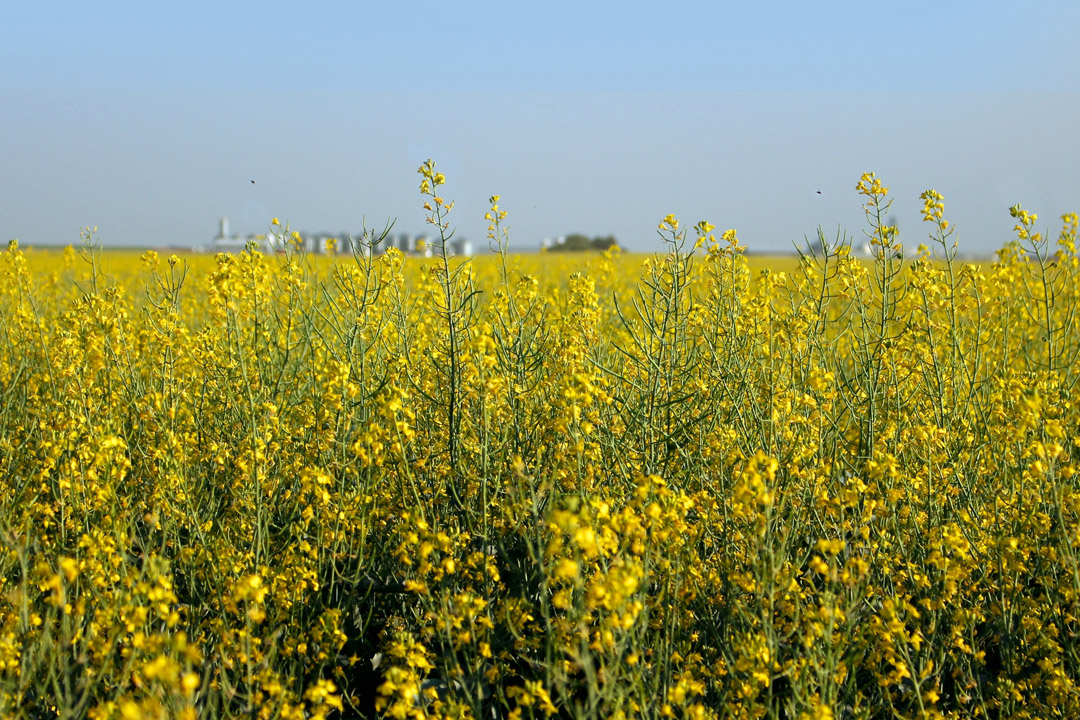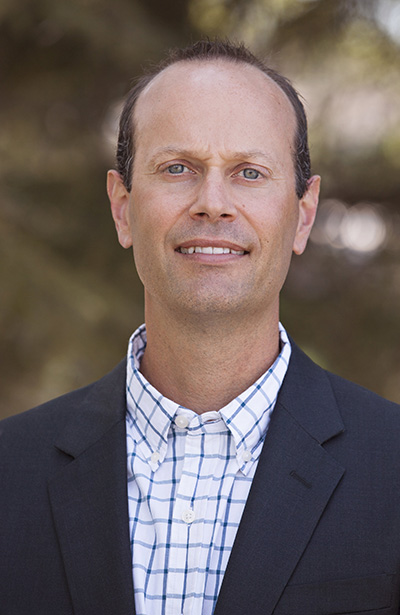
Speaking up for agriculture
Fundamentally, says alumnus Clinton Monchuk, the agriculture industry must advocate for itself because people need to eat.
By Joanne PaulsonMonchuk, the executive director of Farm & Food Care Saskatchewan, has deep agricultural roots that sprouted on the family farm at Lanigan, Sask. and were nurtured in the College of Agriculture and Bioresources (BSA’00) at the University of Saskatchewan (USask).
The career seeds he planted along the way, from an MBA at the University of Guelph to the policy halls of Washington D.C., have grown into a profound knowledge of his industry and its unique importance to human beings.
It seems inevitable, looking back, that Monchuk would today be a leading advocate for agriculture.
“Growing up, I did a lot of work with cattle and on the land,” said Monchuk. “I knew from a young age I always wanted to farm. It definitely was a strong calling for me.”
Once at university, he decided to focus on agricultural economics. He was, and is, fascinated by how the markets function and the global agriculture industry.
“It really was great. It resulted in many great friends that I still have today and a lot of great contacts at the university I deal with weekly. Plus, I have the opportunity to lecture at the university.”
He planned to return to the farm post-degree, but money was tight in farming and his father advised him to get a different job. Monchuk ended up in banking, “which was extremely boring for me,” and ultimately decided to take his MBA at the U of Guelph, specializing in agri-business.
He then taught and conducted research at the Universidad de Guadalajara in Mexico before returning to Saskatchewan as a beef economist with the Western Beef Development Centre (now part of the USask Livestock and Forage Centre of Excellence.)
Then a government-supported opportunity came up to serve as a lobbyist in Washington, D.C., where he worked for the American National Farmers Union and met both American and Canadian policy makers.
“It really did jumpstart my career.”
He subsequently became a lobbyist in Ottawa with the Canadian Federation of Agriculture as director of trade policy and spent a lot of time in Geneva. But his life had taken a personal turn while in D.C.
“My biggest benefit from my experience down in Washington, D.C. was that I met my wife,” Monchuk said. “She’s a cowgirl from southern Oklahoma and I convinced her to move up to Canada.”
They had decided to start a family and live in either Saskatchewan or Oklahoma when he lined up a job with the Chicken Farmers of Saskatchewan. Saskatchewan became their choice, although the job came with spending a lot of time in Ottawa.

A change in plan
After many years in the job, Monchuk, who was very involved coaching his son’s baseball team, had a revelation.
“I was going to have to leave him for a tournament or a few games that I was going to miss. I said, ‘I’m sorry I’m going to have to leave you, buddy.’ As I was leaving, he said, ‘That’s okay, Dad. I’m used to you being gone.’”
Monchuk takes a breath before continuing.
“I’m not that emotional of a man, but I started tearing up on the flight to Ottawa.”
And so, when the Farm & Food Care Saskatchewan directorship came up, he applied and landed the position, which allows him to stay mainly in Saskatchewan. Meanwhile, he continues to farm with his brother, who lives on the farm full-time. The family has gone out of cattle and dairy but continues to grow grain and run an egg layer business.
“I always say, they were going to pay me to talk about farming, and I was doing it for free for the last 30 or 40 years, so I figured why not? If I could possibly have designed my own job . . . this would be it. It’s the perfect job for me.”
Monchuk is definitely a multi-tasker; the job has many arms and legs to it. For example, he speaks and lectures frequently at USask. He was recently a guest speaker on public trust in agriculture for Dr. Stuart Smyth’s (PhD) Agricultural Economics 459 class, as well as several other ag science and ag econ classes and a nutrition class in the College of Pharmacy and Nutrition.
“We are the most trusted sources, we being those in the agriculture industry. The College of Agriculture and Bioresources puts out some great students. We have world leaders from the College of Agriculture and Bioresources. Farm & Food Care’s goal is making sure advocacy is part of their lives.”
Working with current and future industry advocates is about 20 per cent of Farm & Food Care’s efforts. Its main focus is on consumers, who are inundated with mistruths on social media that the organization is trying to dispel with facts.
“We have a lot of social media that occurs through our main brand, CanadianFoodFocus.org,” he said.
“We did an analysis of what consumers are searching for. It turns out they don’t search for farming or ranching. They search for food nutrition or food safety. We built this whole brand around what consumers are actually searching for and then we filled it with the undercurrent of how that food is being produced.”
He gives the example of someone searching for the nutritional qualities of beer, who will also see recipes using barley, and information on maltsters and microbreweries.
“It will lead you down the path to how is that barley originally grown on a farm in Saskatchewan,” he explains. “You bring people in on the food side, and they’re interested enough that they want to keep going.”
Canadian Food Focus was initiated in the second quarter of 2019 and has reached 7.5 million engagements. Every month brings another half-million, which he considers quite amazing coming from a province of 1.2 million souls.
“We’re really hitting those key audiences.”
Farm & Food Care also organizes farm tours. A tour of 20 people with their own social media followings could result in 340,000 connections through their own messaging.
All of these efforts are working, he feels, but it will take time.
“I feel like we are moving the bar forward, but it’s a slow-moving bar. One thing we don’t have is celebrity superpower. As soon as we talk about, say, the benefits of dairy products, Joaquin Phoenix can go to the Oscars and tell you not to drink milk.”
Influencing public trust
Monchuk notes that less than three percent of the Canadian population has a direct tie to a farm. As more generations are removed from farming, the understanding of how food is produced becomes more distant.
“And when it becomes more distant, you have policy makers come in to change the rules because they think what they’re doing is right,” he said.
That may result in seeding distrust in farming from people who don’t understand that producers are trying to ensure “that we have enough food, food security and safety of food, in our country and beyond to make sure people can eat. Failure to do so will hurt us in the future.”
Individuals can help by talking about their places in the food system and giving people a better understanding of food production.
“And you can do it in a variety of ways. You can volunteer to speak in the classrooms with Agriculture in the Classroom’s Agriculture Literacy Month. You can post on social media.”
“One of them would be to take our workshop called SpeakUp training. It’s an online workshop (and) those individuals who do that just feel more confident going forth and talking to a community group or speaking to that individual you’re sitting beside on the plane ride to Puerto Vallarta or wherever.”
Agriculture, he notes, touches everyone. Not only does everyone have to eat, “one in eight jobs are affected by food and farming, and some of those people don’t even realize they’re affected by it.”
“It all relates and trickles back to the farm. We owe everything we have today to agriculture.”
Agknowledge, Fall 2022

